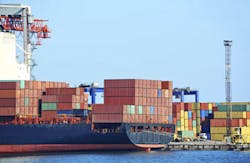Iranian petrochemical traders stick to CFR deals to avoid payment troubles
Iranian traders of petrochemical products are seeking to avert potential payment troubles in Asia by pricing their deals on a cost and freight basis (CFR) instead of using the freight on board (FOB) method, Platts reports, citing insiders from Dubai and Iran.
The publication quoted a source close to petrochemicals and refined products trader Petrochemical Kala Co saying that the company was using the CFR method for deals made with countries such as China in an effort to ensure that the products are supplied only when the payment has been arranged.
When a customer covers around 25%-30% of the total value of shipment at the time of cargo loading, the remaining amount is paid when the cargo is delivered. This payment method helps avoid the risk of default for Iranian companies, which would bring additional challenges to the continuing uncertainty over sanctions, the source said.
In November 2013, Iran got some sanction relief from six countries in exchange for curtailing its nuclear activities for a six-month period starting from January 20. Later, the European Union waived a restriction on the provision of insurance for tankers and ships transporting crude oil and petrochemical products from Iran. But certain banking restrictions remained in place, even during the six-month relief period.
Iranian cargo payments are generally arranged in cash and its exclusion of the global financial network remains a key obstacle for major companies, like Sinopec, to buy petrochemicals from the country. Global banks are also finding it hard to open letters of credit for payments in and out of Iran and certain financial networks, among them being Western Union, are yet to allow money transfers into the country, sources say.
